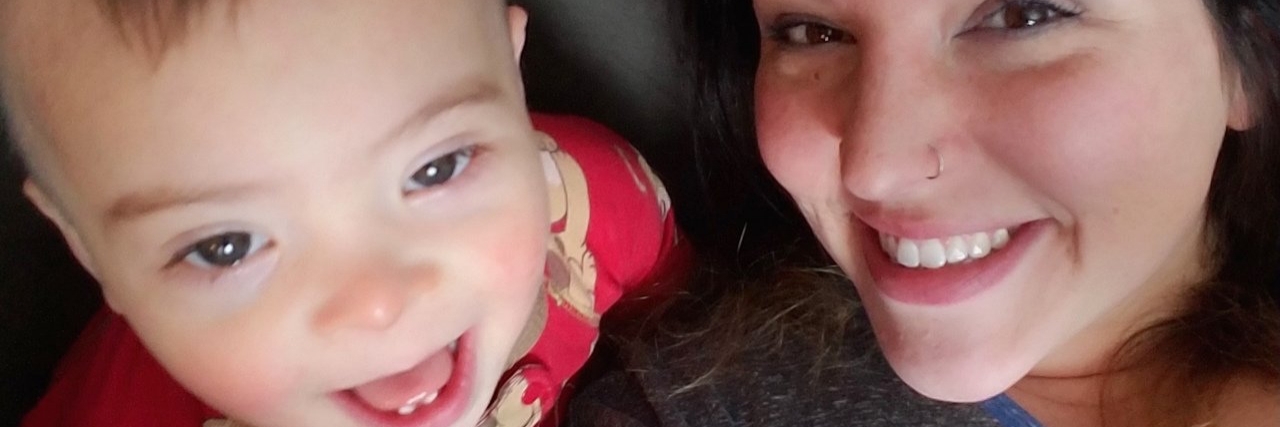The Questions I Wish You Would Ask After I Tell You My Son Has Down Syndrome
I work in retail and interact with many people on a daily basis. I sometimes find myself dreading conversation, not because I’m ashamed of anything in my life, especially my amazing son with Down syndrome, but because people can be ignorant.
My son, Zak, will be 2 soon. Naturally, being a parent, I talk about my children. I also have tattoos with my kids’ names. I’m in sales and have to find ways to create a short-term relationship with customers. One of the best ways I have found to do this is through my kids.
In doing so, however, I open myself up to questions, such as “Is he walking yet?” or “Is he talking yet?” All typical things an almost 2-year-old is usually doing. But Zak is not.
So when the answer to those questions is no, people ask more questions. I then tell people, who are ultimately strangers, that my son has Down syndrome. Some respond by saying, “I’m sorry.” Others quickly change the subject. Some tell me about someone they know with Down syndrome. I dread these conversations for many reasons.
First off, they have absolutely nothing to be sorry about. Zak is healthy and happy and adored. Next, why should someone with a disability make people uncomfortable? It shouldn’t. He’s just like any other toddler. He’s just taking his time getting to a few milestones. And lastly, your brother’s best friend’s neighbor’s niece is not my Zak. Not all people who share a disability or condition are the same. I get they’re just trying to find some common ground, but honestly, it’s difficult for me when people say things like, “My brother’s best friend’s neighbor’s niece has Down syndrome, and she is always happy.” Well, no, she probably isn’t always happy because no one is. And having Down syndrome doesn’t make people happy constantly. People with Down syndrome share the same myriad of emotions others feel.
I’d rather people ask open, honest questions about Down syndrome. Or better yet, ask questions about him like they would any other child. Ask to see a picture — I have many. Ask his name, birthday, likes and dislikes. He’s just like any other toddler. And although I may be partial, he’s very adorable!
Another issue I tend to encounter is the dreaded R-word. It’s beyond irritating. It’s offensive. And no, I’m not being overly sensitive. It’s wrong, it’s hurtful and I shouldn’t have to explain to anyone why it is. I shouldn’t have to plead my case. You should just take my word for it. It’s not OK you weren’t referring to my child or even a person at all. It’s not OK if you were calling yourself it. The R-word is never OK.
I don’t want to dread conversations. I don’t want to have uncomfortable conversations. I want acceptance for my child — and me.
Tell us about a stranger’s comment about your (or a loved one’s) disability, disease or mental illness that has stuck with you for one reason or another. Why has it remained significant to you? If you’d like to participate, please check out our Submit a Story page for more about our submission guidelines.
Have you seen the first film with a national release to star a person with Down syndrome? Check out the film “Where Hope Grows” today!

